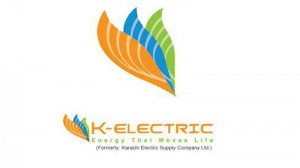NEPAL > InvestBank Acquires Equity Stake In Asian (Nepali) Hydroelectric Projects
LAS VEGAS, Sept. 1, 2015 /PRNewswire/ — InvestBank Corp., the global investment bank headquartered in the United States of America, has acquired a 70% equity stake in the 440 MW Tila-1 hydroelectric project and the 420 MW Tila-2 hydroelectric project in the South Asian country of Nepal. InvestBank is working in cooperation with S.C. Power Company Pvt. Ltd. to develop the two hydroelectric projects. S.C. Power Company is affiliated with Bastola Organization, a diversified multinational conglomerate based in Nepal.
The 440 MW Tila-1 hydroelectric project, which has a projected cost of US $649MM, will be followed by the construction of the 420 MW Tila-2 hydroelectric project. The Tila-2 hydroelectric project has a projected cost of US $555MM. The two hydroelectric projects will be located on the Tila River in the Kalikot district of the Karnali zone in the far-western development region of Nepal. The Tila River’s hydropower resources will be utilized in an environmentally conscientious manner. The power generated by the Tila-1 and Tila-2 hydroelectric projects will be purchased by the Nepal Electricity Authority and India’s KSK Energy Ventures Limited.
The social and developmental impact of the Tila-1 and Tila-2 hydroelectric projects is significant. Nepal’s economic and social development is being hampered by its inadequate energy supply. The country does not have its own reserves of oil, coal, or gas. And, although Nepal’s most significant energy resource is water, only 1.7% of the potential 42,133 megawatts of economically feasible hydropower resources in the country is being utilized.
As of 2014, approximately 24% of Nepal’s population did not have access to electricity. 82% of Nepal’s population uses solid fuels as cooking energy, with 76% of this solid fuel use for cooking coming from firewood. Firewood accounts for 70% of Nepal’s total energy consumption. Firewood is an inefficient energy source and poses a threat to the country’s forests. In addition, the indoor pollution caused by the burning of solid fuels in open hearths in homes presents a significant health hazard. At least 7,500 annual deaths in Nepal are attributable to solid fuel use.
The average daily household energy consumption in Nepal is about 2 kWh, which is mainly used for lighting. Assuming the average daily household consumption in Nepal remains at about 2 kWh, the 440 MW Tila-1 and the 420 MW Tila-2 hydroelectric projects could potentially supply power to over 6 million Nepalese households. Maxwell Pedroza, an analyst at InvestBank, stated, “We are excited to cooperate with Bastola Organization to develop these hydroelectric power projects. These projects will improve the standard of living and the health of the local people and will help prevent deforestation.” Each project is expected to have a construction period of five years.
About InvestBank Corp.
InvestBank Corp. is a premier global investment bank. The investment bank’s registered corporate office is in Wilmington, Delaware, United States of America. InvestBank is headquartered in Las Vegas, Nevada, USA and also has offices in San Diego, California, USA. InvestBank is an opportunistic firm which engages select clients and represents institutional sources of capital. For more information about InvestBank, please visit the company’s website at www.investbankcorp.com.
About Bastola Organization
Bastola Organization is a diversified multinational conglomerate based in Nepal. Established in 1972, Bastola Organization has been a major contributor to Nepal’s development. Bastola Organization initially focused on property development, which continues to be the organization’s flagship enterprise. Today, Bastola Organization’s diversified interests include companies such as Everest Milk Foods Ltd., Bastola Modern Bricks Pvt. Ltd., Asia Telecom (Nepal) Pvt. Ltd., and Urban Green Power Nepal Pvt. Ltd. For more information about Bastola Organization, please visit the organization’s website at www.bastola.org.
SOURCE InvestBank Corp.





